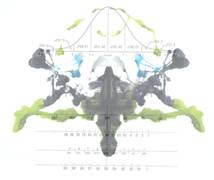 |
| Eighty-four percent of neuropsychologists believe that referral sources do not, or only occasionally read their reports. |
I have recently been rethinking the way in which I write my reports, and in doing some related research, I discovered some interesting statistics. The Massachusetts Neuropsychological Society has initiated a research project, The Stakeholder's Project in Neuropsychological Report Writing, that looks at the unique perspectives of neuropsychologists, referring physicians, and families who participate in assessment on assessment reports.
Although data collection is ongoing (click here to complete the survey), the preliminary results are fascinating. On average, neuropsychologists are spending between 2 and 10 hours writing a single report, with a sizeable minority spending between 10 and 20 hours on a report, with report lengths ranging from 6 to 13 pages.
But here's the kicker - 84% of neuropsychologists feel that the individuals who refer patients for assessment don't read the assessment reports, or only read them occasionally.
What does this mean? What's to be done?
Stay tuned, there's more to come...
.jpg)



No comments:
Post a Comment